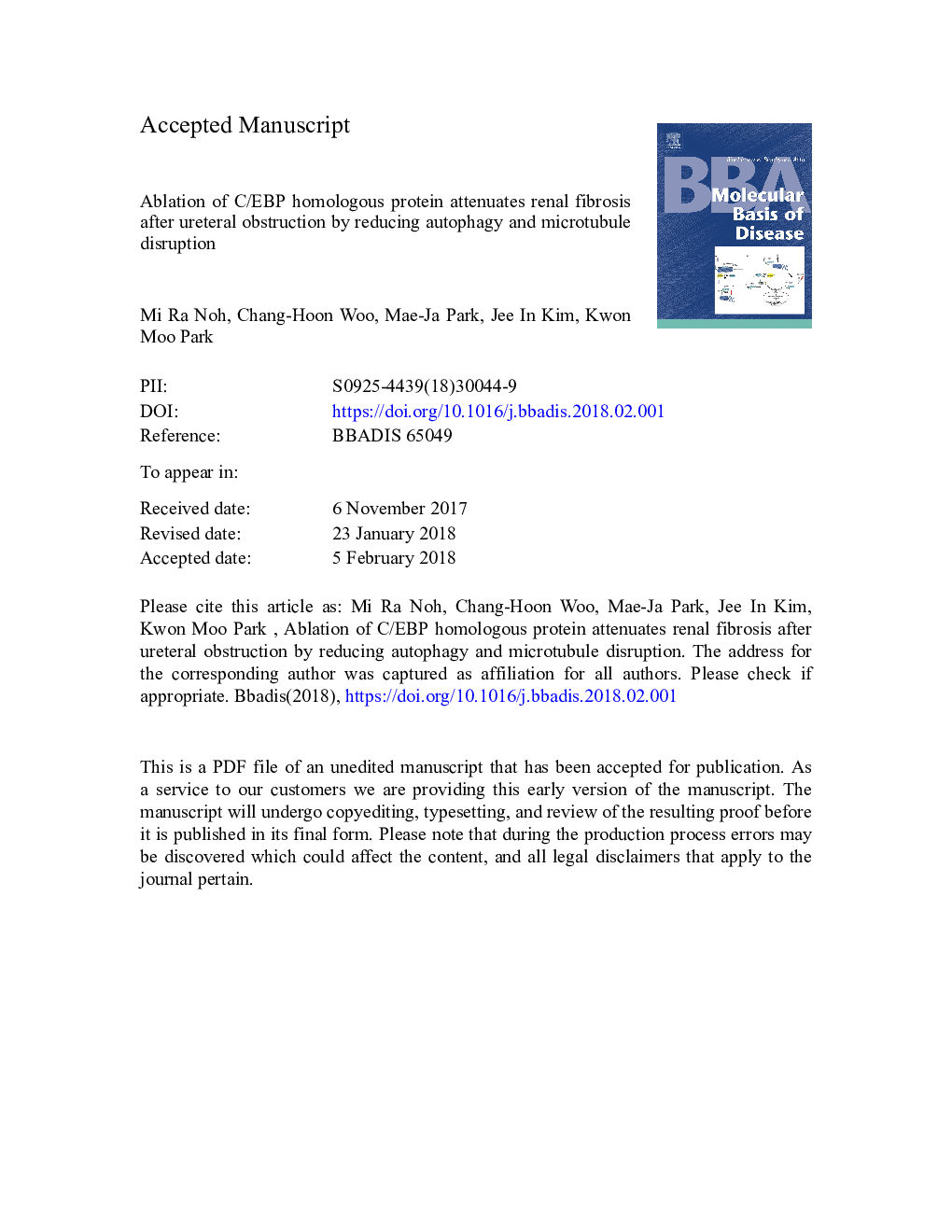| Article ID | Journal | Published Year | Pages | File Type |
|---|---|---|---|---|
| 8258466 | Biochimica et Biophysica Acta (BBA) - Molecular Basis of Disease | 2018 | 27 Pages |
Abstract
Fibrosis is an undesirable consequence of injury and a critical problem in many diseases. Recent studies have demonstrated an association of C/EBP homologous protein (CHOP) with fibrosis. We investigated the mechanism of CHOP in kidney fibrosis progression after unilateral ureteral obstruction (UUO) using Chop gene-deleted (Chopâ/â) mice and their wild-type littermates (Chop+/+). UUO-induced kidney fibrosis was reduced in the Chopâ/â than Chop+/+ mice. After UUO, CHOP expression was detected in the cytosol and nucleus of distal tubule cells and collecting duct cells of the kidney. UUO formed the autophagosome and increased the expression of autophagy proteins, Beclin-1, LC3-I and II, and p62 in the kidneys. These UUO-induced changes were significantly reduced in Chopâ/â mice. Furthermore, Chop gene deletion attenuated mitochondrial fragmentation with lower expression of Fis-1, a mitochondrial fission protein, but higher expression of Opa-1, a mitochondrial fusion protein, than that seen in the wild-type mice. UUO disrupted the microtubule, which is involved in autophagosome formation, and this disruption was milder in the Chopâ/â than Chop+/+ mouse kidney, with less reduction of histone deacetylase 6 and αâtubulin acetyl transferase, which acetylates tubulin, a component of the microtubule. After UUO, apoptosis, a consequence of autophagy and mitochondrial damage, was reduced in the Chopâ/â mouse kidney cells than in Chop+/+ mice. Thus, the ablation of Chop attenuates renal fibrosis, accompanied by reduced autophagy, mitochondrial fragmentation, microtubule disruption, and apoptosis. Overall, these results suggest that CHOP plays a critical role in the progression of kidney fibrosis, likely through regulation of autophagy and apoptosis.
Related Topics
Life Sciences
Biochemistry, Genetics and Molecular Biology
Ageing
Authors
Mi Ra Noh, Chang-Hoon Woo, Mae-Ja Park, Jee In Kim, Kwon Moo Park,
